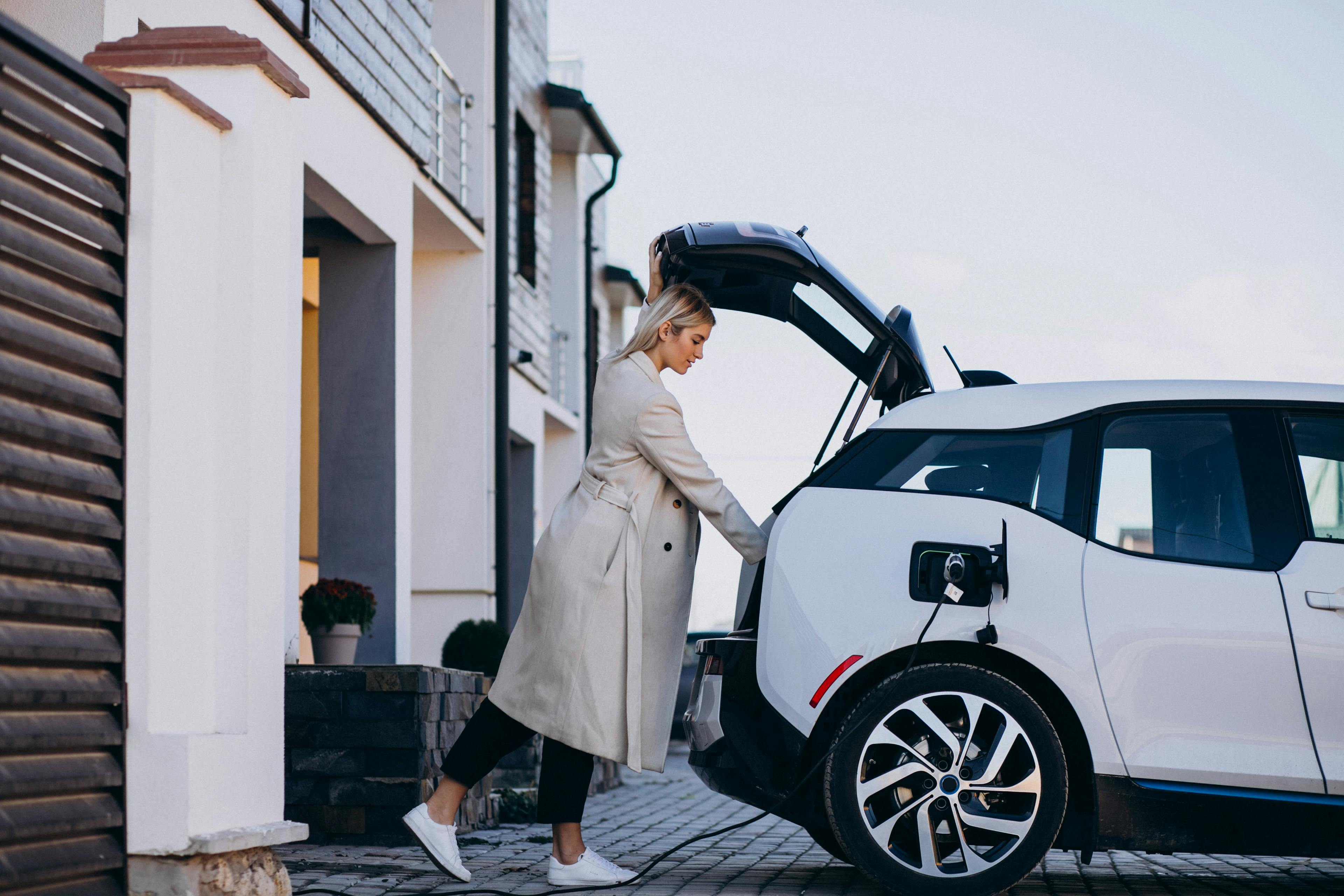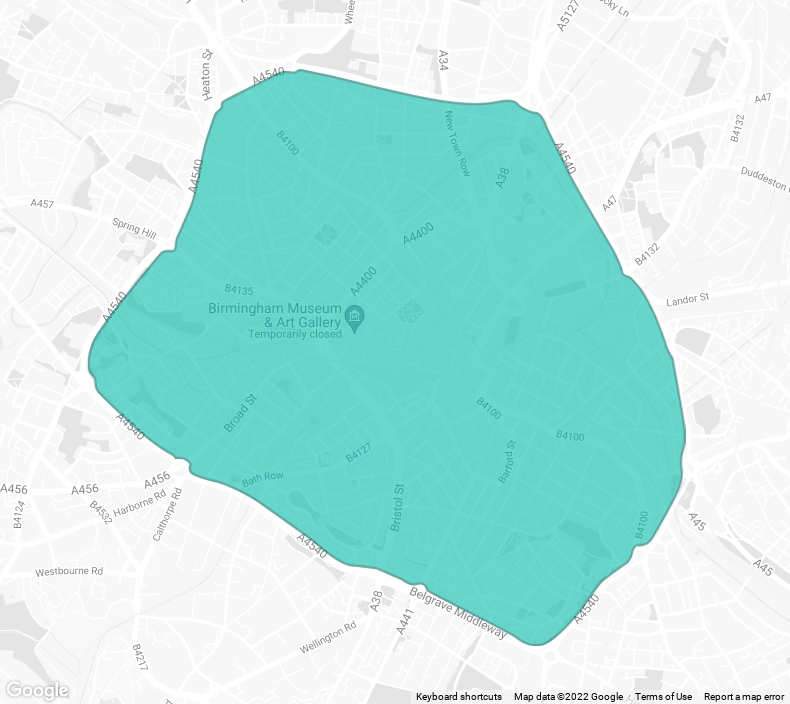
Birmingham Clean Air Zone: Everything You Need to Know
Find out what the Birmingham Clean Air Zone is, who it affects and what parts of the city it covers
If you live in Birmingham, or regularly drive into the city, you need to be aware of the Birmingham Clean Air Zone (CAZ).
The CAZ opened on 1st June 2021 and, while the regulations didn't come into effect for two weeks to give drivers "time to adjust", they are now in force. These regulations will affect you differently, depending on what vehicle you drive.
Find out all you need to know about the Birmingham Clean Air Zone in this article.
What is the Birmingham Clean Air Zone?
The Birmingham Clean Air Zone discourages the most polluting vehicles from driving into a specified area of the city. It is a way to quickly reduce levels of NO2 (Nitrous Oxide) in the air from current levels to 40g/m3.
The UK Government identified Birmingham as a city that needed urgent improvement in a 2017 report. This meant creating a Clean Air Zone as soon as possible, a deadline that the COVID-19 pandemic delayed by 11 months.
Where is the Birmingham Clean Air Zone?
The Birmingham Clean Air Zone covers all the roads within the A450 Middleway Ring Road, but not the Middleway itself. This affects major population areas such as:
-
Digbeth
-
Deritend
-
Hockley
-
Ladywood
-
Lee Bank
It also affects the whole of the city centre, including the area surrounding Birmingham New Street and the Jewellery Quarter.

How Can You Tell If You're in the Zone?
If you haven’t double checked your route before you drive through Birmingham, there is no need to panic. You will be able to tell if you are in the Clean Air Zone by the blue road signage that will be around the area.
They have a small green cloud in the middle of the sign, with a ‘D’ to signify the class of Clean Air Zone.
What Vehicles are Charged to Drive in the Birmingham Clean Air Zone (And Which are Exempt?)
The Birmingham Clean Air Zone is a Class D CAZ. This means that the following vehicles will be charged if they don’t meet the relevant emissions standards (in brackets):
-
Buses (Euro VI)
-
Coaches (Euro VI)
-
Taxis (Euro 4 if petrol, Euro 6 if diesel)
-
Private Hire Vehicles (Euro 4 if petrol, Euro 6 if diesel)
-
HGVs (Heavy Goods Vehicles) (Euro VI)
-
Vans (Euro 4 if petrol, Euro 6 if diesel)
-
Minibuses (Euro 4 if petrol, Euro 6 if diesel)
-
Cars (Euro 4 if petrol, Euro 6 if diesel)
Motorcycles and mopeds are the only internal combustion engine (ICE) vehicles that aren’t charged for driving in the Birmingham Clean Air Zone.
Fully electric or hydrogen-powered vehicles are automatically exempt as they don't produce any exhaust emissions. Hybrid electric vehicles are only exempt if they meet the required emissions standards (Euro 4 for petrol, Euro 6 if diesel).
What are the Charges to Drive in the CAZ?
If your vehicle doesn’t meet the relevant emissions standards, you have to pay the following charge:
£8 per day for cars, taxis and LGVs (Light Goods Vehicles)
£50 per day for coaches, buses and HGVs
You must pay to drive through the Clean Air Zone either:
Up to 6 days before the day of your visit
On the day of your visit
Up to 6 days after the day of your visit
You won’t be notified if you have driven through the Birmingham Clean Air Zone. As a driver, it is your responsibility to know whether your car meets the emissions standard and then to pay the right charge if necessary.
If you fail to pay the charge within the 13-day allocated window, you will be subject to a £120 Penalty Charge Notice (PCN). You can reduce this to £60 if you pay it within 14 days.
You can pay the charge online. If you pay to drive through the CAZ in advance but decide not to enter on that day, you can also apply for a refund.
What Time is the Birmingham Clean Air Zone Enforced?
The CAZ is enforced 24 hours a day, 365 days a year. You are subject to a daily charge if your vehicle doesn't meet the right emissions standard, but you only need to pay once per day. This allows you to drive in the zone without limit.
The charges apply from midnight to midnight, not 24 hours from when you enter the zone. For example, if you enter the CAZ at 11:59 pm one day, drive through it and then reenter at 12:30 am, you must pay for 2 days.
How Can I Check If I Will Be Charged to Drive in the Birmingham Clean Air Zone?
The UK Government provides a free online checker to help you find out if you will be charged for driving through the Birmingham Clean Air Zone.
You should check your vehicle’s compliance regularly, even if you have driven through similar zones in other cities. The restrictions differ and you may be charged in Birmingham but not in Bath, for example.
If you'd like to learn more about the Birmingham Clean Air Zone, you can watch this video from Birmingham City Council below: